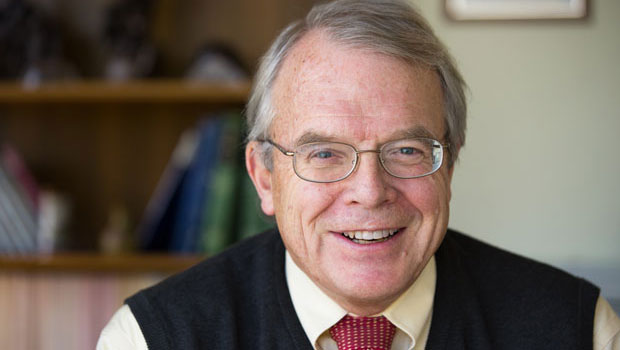Embracing uncertainty in politics and health

In these nerve-wracking times, Dr. Eric B. Larson says get informed, be activated, and stay true to your values
by Eric B. Larson, MD, MPH, Group Health Research Institute (GHRI) executive director, and Group Health vice president for research
We’re less than three weeks from election day, and the campaign news is relentless. When I talk about politics with friends, family, and colleagues, we’re engaged, but also anxious. We’re eager to see who will represent us in our federal, state, and local governments, but unsure about the future of our country.
Our anxiety isn’t centered only around November 8, either. Health care decisions often make us feel uneasy, especially as clinical recommendations and guidelines become more complex. We all need to have a healthy tolerance for uncertainty.
Breast cancer studies in the news show how more medical evidence demands a greater capacity for uncertainty. Just this month, in the New England Journal of Medicine (NEJM) (abstract here), a widely noticed paper raised (again) the question of whether improvements in breast cancer mortality are mainly from better treatment, not screening.
The results support breast cancer screening tailored to individual risk factors but add to our uncertainty about the benefits of widespread screening. The problem is when screening leads to overdiagnosis — detecting and treating abnormalities that aren’t life-threatening cancers. GHRI Affiliate Researcher Joann Elmore outlines the issues and possible solutions in an NEJM editorial (preview here). GHRI Senior Investigator Diana Buist heads leading-edge research that informs risk-based breast cancer screening guidelines recommended locally and nationally by the U.S. Preventive Services Task Force and American Cancer Society. She says that for women, the bottom line is that they must weigh the risks and benefits and decide if screening is right for them.
Another NEJM study in August shows that gene profiling provides valuable information to women and doctors about risk of breast cancer recurrence after surgery. The information may help some patients decide whether to receive chemotherapy. The uncertainty for some women, however, is that avoiding the treatment may slightly increase risk of metastasis compared to similar women who choose chemotherapy. How does a patient in that situation assess this small increased risk?
David Hunter, ScD, Harvard School of Public Health presents this question in his commentary, “Uncertainty in the era of precision medicine.” He notes that a lack of absolute, black-and-white guidance is not unique to breast cancer. He writes, “As in most medical practice, when the results are in, we are often likely to face far-from-certain answers.” The lack of certainty can paralyze us or we can get educated, get activated, and make informed choices.
Both Drs. Elmore and Hunter call for providers to learn to communicate complex information clearly to patients. Conveying evidence about risks and benefits in plain language is fundamental to good care. For patients, the approach we use to making civic decisions also works for confronting health uncertainty:
- Know your core values. If you understand and can communicate your personal priorities, you can assert them, both in the voting booth and when discussing options with your physician.
- Be informed. Learn to evaluate complicated information and ask questions, whether talking with a government representative or your health care provider. Remember that clinical guidelines are continually changing. Don’t lose confidence when they are updated. New recommendations reflect new knowledge and, we hope, better accuracy.
- Make decisions based on what you’ve learned and guided by your values.
This plan gives us some control over uncertainty and makes us less likely to be overwhelmed by information or second guess decisions. In any case, by next month, the election results will be in. My November newsletter will have thoughts about the way forward for our communities and our country.


